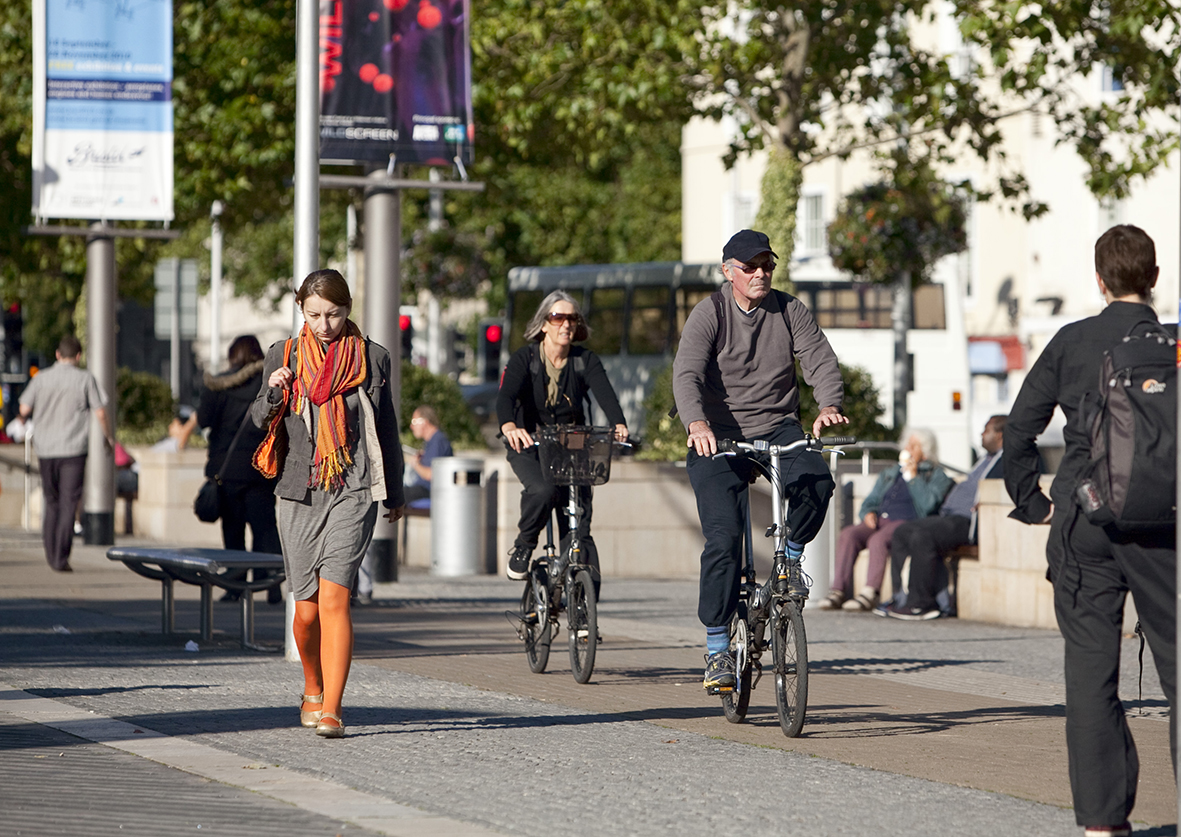
UK Student property is regarded as one of the strongest investment platforms today (Img source: http://bit.ly/2EhQLnQ)
This month, a Scottish property developer signed a £500m joint venture with a US company to build student accommodation across the UK. The Glasgow-based Structured House Group (SHG) said the agreement with Harrison Street Real Estate would lead to 5,000 apartments being built over the next five years, with potential sites already identified in the northwestern cities of Manchester and Liverpool, and Scotland. Many institutional investors, both private and state-owned, are pouring money into UK student property, also known as purpose-built student accommodation (PBSA), today.
According to latest figures by the IE Business School in Madrid, sovereign wealth funds have quadrupled their investment in student housing in both Europe and the US, from under 4% a year between 2011 and 2015 to more than 15% in 2016. The sharp increase in investment in the sector is based on the potential growth of wealthier middle classes in emerging economies looking to send their children to study abroad.
In 2015 and 2016, Malaysia’s Felda Investment Corp Sdn Bhd (FIC) launched two investments in the student accommodation market in London worth £168 million.
And from Singapore down south, Mapletree and GIC spent a combined £1.2 billion on student housing in the UK in 2016, in cities like Leicester, Birmingham, Nottingham, Oxford, Edinburgh, Manchester and Lincoln. Singapore holds the title of being the largest investors in student property in UK (and beyond) in recent years.
UK Student Property: Most Favoured Investment
UK student property is regarded as one of the strongest investment platforms today, surpassing other traditional real estate classes. There an acute undersupply of student housing in the UK due to restrictions in building permissions, a challenging planning environment and the government’s support for housing development. This limits the existing residential housing stock that is available for students to rent.
Universities face many of the same problems with building student halls. Students are typically only guaranteed their first-year of accommodation, and left to seek a room of their own after that. Purpose-built student accommodation, thus, are designed to not only solve the dual problems of inadequate university-managed accommodation and residential housing to let, but to go further, and provide a higher standard of living for the discerning student.
In 2016-17 the number of students living in private accommodation increased to 141,210, a growth of 6.4% from 132,720 last year. This trend is predicted to continue, fuelled by the inability of university-managed accommodation to keep pace with student numbers, and a more discerning and affluent student population. Unite Group reports that 85% of second year undergraduates are now looking for quality, purpose-built student homes that fulfill all their needs (including peace and quiet and access to night-life). CBRE statistics shows that student accommodation generally has occupancy rates of about 99%, and, for investors, tenancy is virtually assured.
By 2017, the UK student accommodation market was estimated by Knight Frank to be worth some £46bn and growing. James Pullan, Knight Frank’s head of student property said that there are more investors in the sector now than there has ever been.
“It is one of the few sectors in the property world that has delivered consistent rental growth every year since the economic downturn. More than 70% of investment is coming from overseas buyers, from sovereign wealth funds and ultra high net worth individuals (people with investable assets of more than $30m) and private equity,” he said.
UK student property used to be the sole domain of the institutional investor. In recent years has it been packaged to be accessible by the individual investor, adding to the appeal of this investment class. Its price points are affordable at approximately £65K onwards per unit, which is a steal compared to the price of a London apartment which easily costs more than £500K — and which cannot fetch annualised returns that come close to the 8% that UK student property can.

Student Arrivals Fuel UK Student Property Demand
Meanwhile, students continue to enrol into UK’s higher education institutions. The Government’s removal of the student cap will maintain a steady stream of foreign students applying to study in Britain, buttressing demand for proper accommodation and providing opportunities for investors.
In 2015-16, there were almost half a million non-EU students in the UK, about one-fifth (19.2%) of the 2.3 million total. In the 2017/18 academic year, non-EU applications had risen by 2.2% even while EU applications had fallen ostensibly due to Brexit.
The Higher Education Statistics Agency (HESA) reports that entrants to full-time first-degree, postgraduate taught and postgraduate research courses have increased considerably in the past 10 years (by 31.2%, 30.5% and 25.7%, respectively), and the proportion of 18-year-olds applying and entering higher education were at record levels.
London’s full-time student population alone is expected to rise by 50% in the next 10 years, whilst regional cities, particularly where there is a Russell Group university, is expected to see dramatic increases in student numbers. EU and non-EU students are the fastest growing segment, bringing a net benefit of £2.3 billion per annum to London’s economy supporting 60,000 jobs in the capital.
Ultimately, investors are in it for the returns: UK student property can fetch yields of more than 8% annually. Additionally, PBSAs are categorized as commercial property and, thus, benefit from tax exemptions that residential property does not qualify for. This allows the return on investments to be higher than other classes of real estate. In 2017, market transactions exceeded that of 2016 at £3.61 billion, but , with a further £1.05 billion under offer (unlike 2016) and £1.5 billion in the market, double the totals for 2016.
What makes PBSA such a property hotspot, at the end of the day, is the combination of internationally respected higher education, structural undersupply and steady rental growth. It has proven to be recession-proof and will be Brexit-proof, too. This offers investors a safe and stable place to put their money.
Hiew Yoon Khong, chief executive of Temasek’s real estate arm Mapletree, Singapore, sums it up best: “Student accommodation is a big business and relatively low risk.”
Article by Ian Choong
—
CSI Prop proudly promotes international investment property with high yields at low risk. Our portfolio comprises residential property in cities across the United Kingdom (London, Luton, Manchester, Liverpool, Newcastle, York, Glasgow, Scotland; Sheffield, etc) and Australia (Melbourne, Perth, Brisbane). Our projects are concentrated in high-growth areas with great educational, infrastructural and job growth potentials. We aspire to make a difference in the lives of our clients by helping them achieve their investment goals through strong market research backed by third party experts.
Disclaimer: CSI Prop does not provide tax & legal advice and accepts no liability. Readers are encouraged to consult a qualified tax or legal advisor for a thorough review.
Need advice or clarification? Call us for more information and/or to find out about our projects! Hotline: 03-2162 2260







